
15 minute read
Federal agency’s equity push will backfire on the Black community
By David J. Byrd
One of the most iconic photographs in recent sports history is one of basketball legend Michael Jordan celebrating his fourth NBA championship by holding up three fingers in celebration with a cigar in his mouth.
Advertisement
Like millions of other Black Americans, Jordan enjoys the occasional simple pleasure of smoking a celebratory cigar – a pleasure that the FDA’s Center for Tobacco Products (CTP) wants to eliminate in the name of “equity” and protecting the Black community.
Along with menthol in cigarettes, the agency plans to “[ban] all flavors in cigars”— a move that it claims “will help save lives, particularly among those disproportionately affected by these deadly products” like the African American community.
Flavored cigars aren’t a cause of carnage in the Black community; they are a cause of celebration and cultural expression.
The Black community has led the premium cigar industry for hundreds of years and continues to do so today.
Many Black entrepreneurs own mom-and-pop cigar shops and run some of the nation’s most popular cigars brands like Emperor’s Cut, AS Reserve, Ancestry Cigars, and Tres Lindas Cubanas (a Black women-owned company).
The exact number of African American-owned cigar shops is unknown. Sean Williams, creator of the popular cigar line El Primer Mundo, told NBC News that his company has “not been able to get great data on specifics of the Black cigar market;” that said, he made it clear that “this number may be substantially larger than anyone knows” and that no one can predict when or if the explosive growth of the African American cigar market will stop.
The CTP’s proposed ban would disproportionately impact these Black-owned businesses and jobs, including black farmers, exacerbating present-day racial economic disparities while stripping the Black community of an important cultural symbol and tradition. So, it shouldn’t surprise anyone that they are up in arms over CTP’s proposal.
While Black families and business owners feel that the federal government is unfairly attacking their customs and livelihoods, other Black political activists fear that CTP’s crackdown will accentuate the racial disparities currently prevalent in the American criminal justice system.
Rev. Al Sharpton has warned that the rule may create a dangerous illicit market on our streets, among other adverse effects, while the late congressman and beloved civil rights activist Rep. Donald McEachin (DVa.) said that the rule will “disproportionately impact African Americans and lowerincome communities while tobacco products commonly used by predominantly White or more affluent populations [go] unchecked.”
Not only has a federal court already ruled the FDA’s efforts to regulate premium cigars to be “arbitrary and capricious,” but a December report from Congress’
San Bernardino County Education Leaders Attend Conference to Address Inequities and Removal of Barriers for BIPOC Students, Parents and Staff
Reagan-Udall Foundation also found “fundamental policy and scientific issues” in CTP’s decision-making that “remain unanswered,” which the Center must address.” Why, then, is CTP continuing onward in its quest to regulate flavored cigars?
It is insulting to the Black community that CTP says it’s doing so in the name of correcting health disparities. Black adults should be trusted to make choices for themselves that align with their preferences. It is not the role of CTP to dictate personal habits and preferences when there is no evidence to support such egregiously heavy-handed interventions.
CTP has promised to take the Reagan-Udall Foundation’s recommendations for corrective operational actions seriously, so hopefully, the agency will soon reverse course on this counterproductive regulatory agenda that’s blind to the Black community’s economic, cultural, and social sensitivities. It’s the only right and just thing to do.
David J. Byrd served as the National Director of the U.S. Department of Commerce, Minority Business Development Agency (MBDA). He previously served as the Deputy Assistant Secretary, Office of Policy Development at the U.S. Department of Housing and Urban Development.
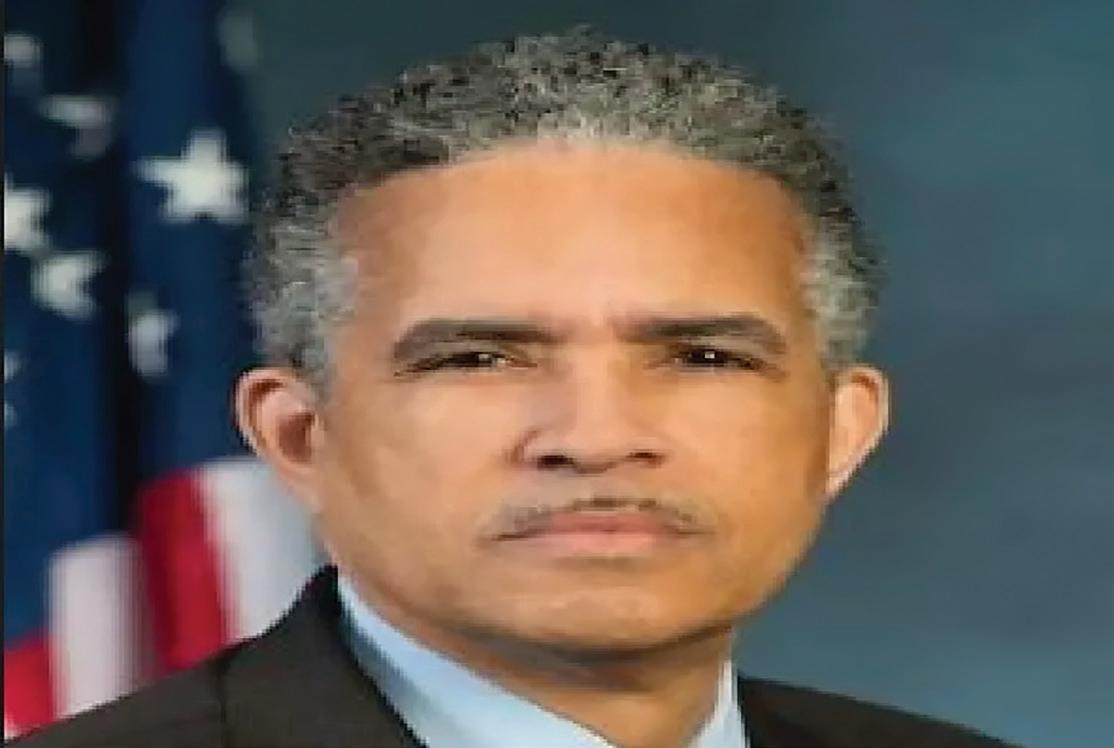
Education in America: we are not colorblind
By Kerry Mitchell Brown, Ph.D
This country has never had equitable and inclusive structures, and colorblindness has never been a thing. The national identity built into our structures, laws, practices, and lived experiences is White supremacist. Race and skin color have always had consequences in this country.
Affirmative action was introduced because racist systems and discriminatory practices had for centuries denied Black people and people of color access to socioeconomic opportunities. Through various legislative initiatives, affirmative action assured Black people and other people of color that they would have the same education and employment opportunities as their White counterparts. Institutions were incentivized to achieve racial equity and representation in classrooms, student bodies, and workplaces, giving them good reason to move away from White supremacy. For nearly six decades, education systems and the labor force have shown us the promise and the possibility of dismantling our White supremacist system. The reality is that affirmative
Kerry Mitchell Brown, Ph.D
action is no silver bullet. It has its limitations, like the fact that many of its initiatives are inequitable and disproportionately realized, often only benefiting White people and deepening inequality; but affirmative action has also been an important tool in raising awareness about and addressing issues of equity in educational and labor systems. The dismantling of affirmative action is a massive setback in our efforts to create an equitable future.
Arguing to ignore the category of race is a form of White supremacy, and it has historically been used to deny racial equity in all aspects of life. We must recognize and address systemic racism and its consequences. We must work together to build a society where race and skin color really doesn’t matter to your educational and job prospects. Until then, we need interventions like affirmative action. Dismantling it, only serves to reinforce a colorblind society rooted in White supremacy. Black people and other people of color will be worse off because of this.
In her dissenting speech, Justice Sonia Sotomayor argued that this decision “rolls back decades of precedent and momentous progress.” We cannot allow this roll back. I want to move forward, toward a future where we make decisions that allow all people to live with dignity, not back to a past of discord and violence.
Approximately 250 Southern California education leaders attended the first Learn.Lead. Liberate conference, and there were 16 education leaders from San Bernardino County, representing the following schools: New Designs Charter, Provisional Accelerated Learning Charter Academy, Ontario Charter, Myers Elementary, Sierra High School, PAL Charter Academy. Creating education environments that work to eliminate inequity and injustice for students, parents, and staff was the conference’s main focus. These local leaders discussed how to remove barriers to foster communities that support and honor BIPOC individuals through evidencebased educational practices that treat students’ differences and experiences outside of school as assets, so they can be valued and learn, regardless of socioeconomic or ethnic background.
“The conference has been amazing, and the guest speakers are so knowledgeable on their areas”, said Dr. Shelley C-Bradford, Ethnic Social Diversity Lead & Teacher, Sierra High School, San Bernardino City Unified School District.
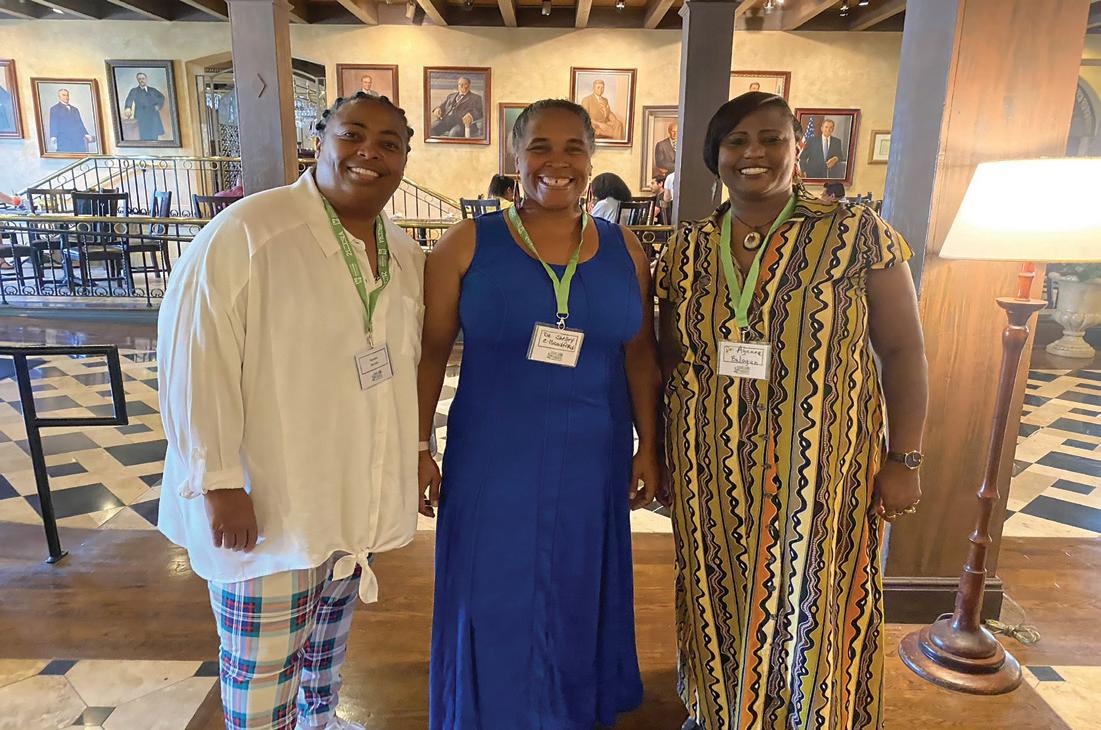
“As our children change, we need to change with them; we can’t just stay the same. It’s important to keep our children engaged if we want them to learn the content and apply it to their life. Literacy means freedom.”
The 21st Century California School Leadership Academy (21CSLA) and the Los Angeles Education Partnership (LAEP) hosted the conference. LAEP is the Regional Academy providing 21CSLA programming in Imperial, Orange, Riverside, San Bernardino, and San Diego counties.
“Our aim is for this forum to bring these leaders together to network and share information about what is working in their communities,” said Michele Broadnax, President and CEO, Los Angeles Education Partnership. “We want to emphasize that these leaders don’t need to do this alone, as 21CSLA and LAEP are here to support them. We see and appreciate the dedication these educators have to this important work.”
Zaretta Hammond, author of Culturally Responsive Teaching and the Brain, gave the keynote address. She is a curriculum developer, consultant, and coach who has spent the past 15 years translating the latest research and teacher experiences on equity, literacy, and culturally responsive teaching into practical tools and strategies. Hammond started her career in the classroom, where she began to understand how important literacy was to equity, and how neuroscience and culture should inform our instructional practice.
Padilla, Takano Highlight Upcoming PACT Act Benefits Deadline
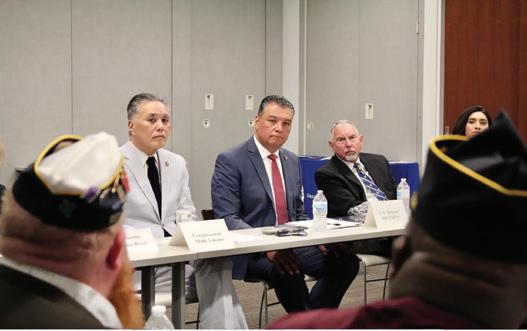
“I was proud to help pass the PACT Act to expand eligibility for quality care and benefits for the millions of Vietnam War, Gulf War, and post-9/11 veterans who were exposed to burn pits and other toxic substances while serving our nation in the Armed Forces,” said Senator Padilla. “I was honored to meet with some of our brave veterans to thank Representative Takano
Kerry
Mitchell Brown, Ph.D, is a cultural architect and equity strategist.
RIVERSIDE, CA — Today, U.S. Senator Alex Padilla (D-Calif.) and Representative Mark Takano (D-Calif.-39), Ranking Member of the House Committee on Veterans’ Affairs, hosted a roundtable conversation with local veterans highlighting the Honoring our PACT Act, which expands Department of Veterans Affairs (VA) benefits to those exposed to toxic substances, ahead of the August 9th deadline for backdated compensation. Padilla and Takano were joined by local VA representatives to share more information on eligibility for those exposed to burn pits, Agent Orange, radiation, and other toxic substances.
San Bernardino City Unified To Host Free Student Immunization Clinics For Back-To-School
Future Of Stem Scholars Initiative Announces 2023 HBCU Scholarship Recipients
Leading HBCU scholarship program to provide 132 incoming college freshmen $40,000 awards
WASHINGTON, July 31, 2023
The San Bernardino City Unified School District (SBCUSD) is committed to student health and has scheduled 10 free student immunization clinics starting in July and running through September.
Scheduled to take place starting July 27, the free student immunization clinics will be available to all enrolled students with Medi-Cal and those without insurance.
Colleen Williams, Director of Student Wellness and Support Services, encourages parents and guardians to take advantage of this opportunity to bring their children up to date on their immunizations in time for the start of the new academic year, which begins on Monday, July 31. The free student immunization clinics offer a convenient and accessible solution for families to ensure their children are protected from vaccine-preventable diseases, Williams said.
“Immunizations are a fundamental aspect of preventive healthcare, helping protect against a range of infectious diseases that can disrupt the learning process and jeopardize the overall health of our students,” Williams said. “By offering free student immunization clinics, we are taking proactive measures to prevent the spread of infectious diseases within our school community and ensuring a healthy learning environment for all.”
The immunization clinics will be staffed by qualified healthcare professionals and medical staff from San Bernardino County and the SAC Health System, with expertise in administering vaccines to children and adolescents.
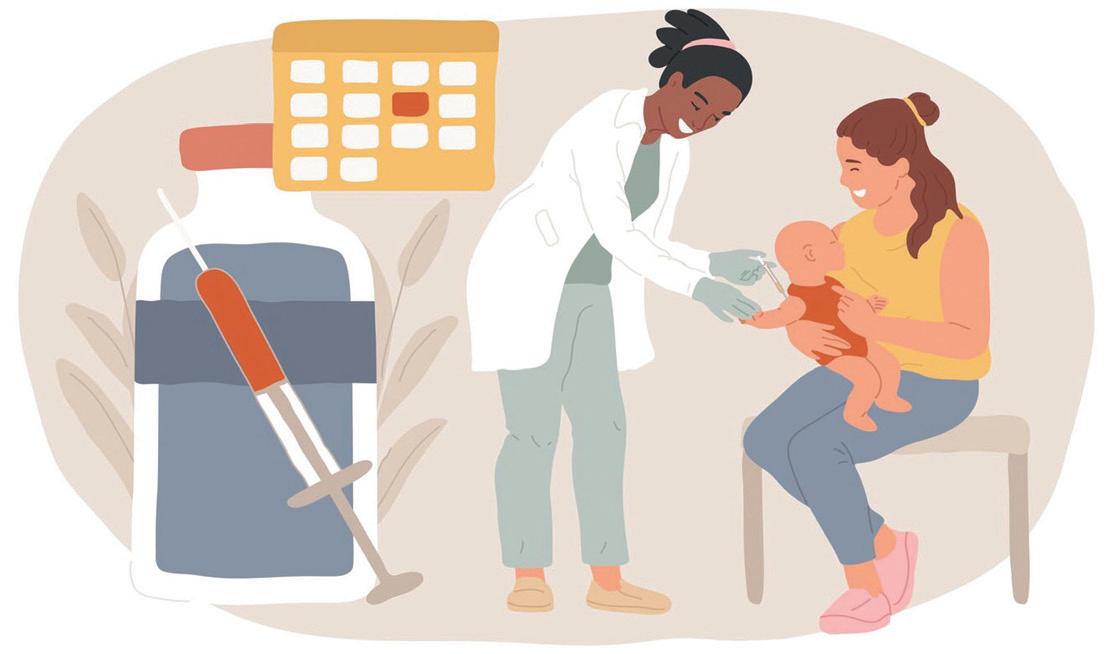
San Bernardino County Immunization Clinics (Families must schedule an appointment. Each clinic location has a specific online appointment link.):
Thursday, July 27, 12 noon–4 p.m., Shandin Hills Middle School, 4301 Little Mountain
Dr., San Bernardino: https://bit. ly/3NFo9uY
Friday, July 28, 12 noon–4 p.m., Serrano Middle School, 3131 Piedmont Dr., San Bernardino: https://bit.ly/43QRCaI
Monday, July 31, 3–6 p.m., Arrowview Middle School, 2299 North G Street: https://bit. ly/3XjXjLO
Friday, Aug. 11, 3–6 p.m., Curtis Middle School, 1050 N. Del Rosa https://bit.ly/3PhVjlu
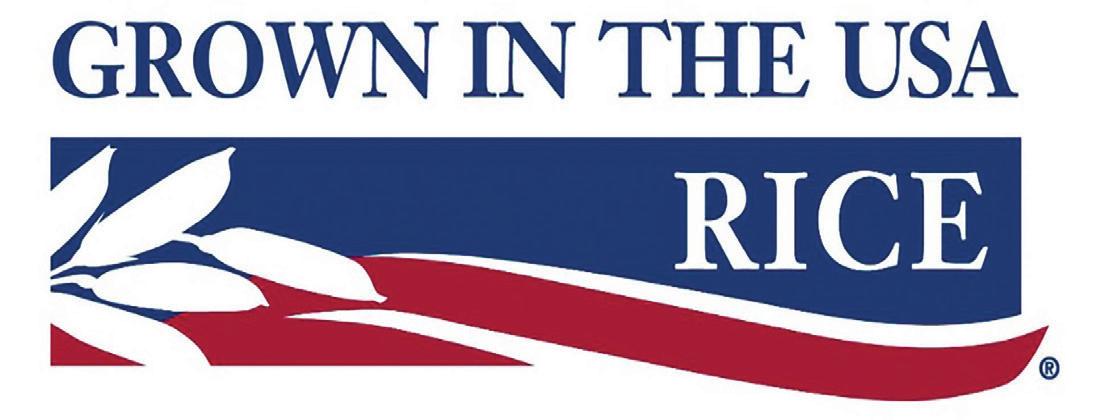
SAC Health Systems Clinics
(Contact a school nurse or school health aide to book an appointment)
Saturday, July 29, 8 a.m.–12 noon, Cajon High School, 1200 W. Hill Dr., San Bernardino
Monday, July 31, 8 a.m.–12 p.m., Board of Education, 777 North F St., San Bernardino
Saturday, Aug. 5, 8 a.m.–12 p.m., Indian Springs High School, 650 N. Del Rosa Dr.
Saturday, Aug. 12, 8 a.m.–12 p.m., Chavez Middle School, 6650 N. Magnolia Ave.
Saturday, Aug. 26, 8 a.m.–12 p.m., Arroyo Valley High School, 1881 W. Base Line St.
Saturday, Sept. 9, 8 a.m.–12 p.m., Rodriguez PREP Academy, 1985 N. Guthrie Street, San Bernardino
To participate in the free student immunization clinics, parents and guardians should schedule appointments in advance and bring the student’s immunization record and photo identification for the parent or guardian. Appointment details and registration information can be found on the San Bernardino City Unified School District's website at www. sbcusd.com. Walk-ins will also be accommodated, subject to availability.
For questions or appointments, please call (909) 473-2080 or (909) 880-6839. Families may also call the school nurse or health aide to make an appointment once school starts.
/PRNewswire/ -- Representatives of The Future of STEM Scholars Initiative (FOSSI) today welcomed 132 new scholarship recipients from 26 states across the nation. The students will begin school at 26 Historically Black Colleges and Universities (HBCUs) this Fall and will major in more than a dozen science, technology, engineering and math (STEM) fields. They join nearly 300 current FOSSI scholarship recipients.
Established in 2020 to help reduce financial barriers to higher education and enhance workforce diversity in the chemical sector, FOSSI provides $40,000 scholarships to students pursuing preferred STEM degrees. Scholarship recipients are individually matched with one of more than 70 corporate sponsors committed to helping them achieve their goals and receive skills training, mentorship, and internship opportunities. Notably, this robust support has led to an approximately 95% student retention rate since FOSSI welcomed its first class in 2021, with those scholars scheduled to graduate in 2025.
FOSSI has an ambitious goal of supporting 1,000 students through 2025 and has raised nearly $30 million to support 595 students to date.
Program leaders welcomed the new scholars during a virtual celebration featuring keynotes from Congresswoman Alma Adams (D-NC) and Dr. Dietra Trent, Executive Director of the White House Initiative on Advancing Educational Equity, Excellence, and Economic Opportunity through HBCUs.
FOSSI Advisory Board Chair
Jim Fitterling, chair and chief executive officer of Dow, shared, "I am proud to welcome these 132 talented and ambitious scholars to the FOSSI family. From their academic performance to the contributions they have made to their schools and communities, these scholars have distinguished themselves as some of the best and brightest across the nation. We can't wait to see what they accomplish in their chosen fields."
Applications for the Fall of 2024 will open September 22, 2024. To learn more about FOSSI, visit www. FutureOfSTEMScholars.org.
Feeding America Riverside | San Bernardino Receives $250,000 Grant From The Anthem Blue Cross Foundation For Local ‘Food As Medicine’ Initiative In The Inland Empire

Community/ Education News
August 1, 2023, (Riverside, CA) – Feeding America Riverside | San Bernardino (FARSB) announced it has received a $250,000 grant from the Anthem Blue Cross Foundation, a philanthropic arm of Elevance Health Foundation, to launch a 3-year ‘Food as Medicine’ initiative in the Inland Empire. The grant will support FARSB as it collaborates with local healthcare providers to screen patients for food insecurity during healthcare visits. The healthcare partners will then connect patients who screen positive for food insecurity to food assistance resources onsite at healthcare facilities, community-based food pantries, and meal programs.
The ‘Food as Medicine,’ a Feeding America® initiative funded by the Anthem Blue Cross Foundation, will help connect approximately 9,000 people facing hunger in Riverside and San Bernardino counties to food distribution programs that provide access to healthy food options. The initiative aims to screen between 70,000 and 80,000 patients over the next 3 years with the goal of improving food security and health outcomes.
"At FARSB, our paramount goal is to forge meaningful partnerships, facilitating the equitable distribution of resources to families in need, particularly those who may be hesitant to approach conventional food pantries for assistance. Through the 'Food is Medicine' initiative, families are being introduced to food assistance programs during their health care visits when they need it most," said Carolyn Solar, CEO of Feeding America Riverside | San Bernardino. "We wholeheartedly value our collaboration with Anthem, as together, we are bridging the gap between hunger and health."
“We are committed to improving the health of people across California, and we do that by establishing meaningful partnerships and collaborating with organizations like we are doing here in the Inland Empire,”
India is Playing Games with Global Food Security, But There Is No Rice Shortage Here
U.S. rice farmers beginning harvest on largest crop in years said Beth Andersen, president of Anthem Blue Cross in California. "This partnership will allow clinical staff to conduct universal food insecurity screenings and interventions, helping provide a deep understanding of the healthrelated needs of the populations we collectively serve.”
The lack of access to nutritious foods can have serious, longterm effects on health and wellbeing, and it can make managing existing chronic conditions more difficult for people facing hunger.
[1] The ‘Food as Medicine’ program includes data collection capabilities that will help identify learnings and best practices to enable positive health outcomes in participants. FARSB, a member of the Feeding America network, is one of 21 food banks to receive this funding from the Anthem Blue Cross Foundation.
About Feeding America Riverside | San Bernardino Feeding America Riverside | San Bernardino (FARSB) is leading the fight against hunger in the Inland Empire by providing food access, emergency relief, education, and advocacy to families in Riverside and San Bernardino Counties. FARSB opened in 1980 as Survive Food Bank in response to the increasing concern about the dual problems of hunger and food waste in the Inland Empire. Today, FARSB is the primary food source for over 250 local nonprofit organizations, distributing over two million pounds of food monthly to emergency food pantries, soup kitchens, high-need elementary schools, senior centers, afterschool programs, and more. With the help of these community partners, they make up the largest hunger-relief organization serving Riverside and San Bernardino Counties, ultimately making food security a reality for over 1.2 million people every year. Feeding America Riverside | San Bernardino proudly holds the 2022 Guide Star Platinum Seal of Transparency, the highest level of transparency achievable through Guide Star. For more information, visit www. FeedingIE.org.
ARLINGTON, VIRGINIA
– On the news that market manipulator and largest exporter of rice in the world, India, has slapped an export ban on all nonbasmati rice, people in the U.S. began panic buying of rice. They can rest assured – there’s enough U.S. rice to go around.
This is not toilet paper in the Spring of 2020. This is rice, and U.S. rice farmers in seven states grow rice sustainably on three million acres with more than enough supply to fill rice cookers and pots in every corner of the country.
“This year, rice acreage in the U.S. is up in six of the seven rice producing states,” said Kirk Satterfield, Mississippi rice farmer and chair of USA Rice.
“We export half our crop, but even still the vast majority of the rice we eat here is grown here on family farms. If we need more rice for U.S. consumers, we have plenty to meet demand. There’s no shortage.” Satterfield said U.S. farmers grow all the rice types India is throttling, and even basmati as well.
“We continue to have the safest, most sustainable food supply in the world,’’ he said from his farm in Bolivar County, Mississippi where harvest will begin in just a few weeks. “Consumers can buy long-, medium-, or short grain, basmati, jasmine, whatever they want and it’s from right here in the U.S. where we have fair and responsible labor and environmental practices.”
The Indian export ban is seen as a cynical ploy to strengthen their domestic market after years of massive over-subsidization that has led to tens of millions of metric tons of rice in governmentheld stocks.
“This is another example of India playing games with global food security,” said Bobby Hanks, Louisiana rice miller and chair of the USA Rice International Trade Policy Committee. “Countries that depend on India for low priced rice are suffering, and in the end, India is growing their already massive stocks, which they will eventually start dumping back on the world market at dirt cheap prices, again wreaking havoc on global markets and food insecure nations.”
Hanks and Satterfield agreed that consumers can insulate themselves from these bad actors by looking for rice grown in the USA.
“Check the package,” Satterfield said. “Look for the Grown in the USA mark or another indication that you’re supporting U.S. farmers and saying no to this crass attempt at market manipulation.”
NFPA Receives Safe Kids Champion for Children Award for Contributions to Child Safety
July 28, 2023 - The National Fire Protection Association® (NFPA®) was among eight recipients to receive the Safe Kids Champion for Children Award at the Safe Kids Childhood Injury Prevention Convention (PrevCon) on Monday in National Harbor, MD. The award honors individuals, businesses, government agencies, and organizations that have made a significant impact in the field of child injury prevention.
“We all want a world where every child has a chance to grow up to become whatever they can imagine,” said Torine Creppy, president of Safe Kids Worldwide. “We are proud to honor these exceptional leaders for their passion and commitment to making a difference in the lives of children, families, and communities.”
Safe Kids Worldwide® is a nonprofit organization that works to protect kids from preventable injuries, the number-one cause of death for children in the United States. Safe Kids collaborates with an extensive network of more than 400 coalitions in the
U.S., in addition to partners in more than 30 countries around the globe, to reduce traffic injuries, drownings, falls, burns, poisonings, and more. Every two years, Safe Kids Worldwide honors members of the child injury prevention community for their commitment to keeping kids safe.
NFPA has worked with Safe Kids for many years in a shared effort to make children and their families safer from fire. Most recently, NFPA has hosted a series of webinars and other events to help educate Safe Kids coalition leaders about effective ways to better educate communities about home fire safety, equipping them with essential tools and knowledge to maximize their efforts.
"NFPA remains dedicated to working with Safe Kids to further reduce children’s risk to fires and burns," said Andrea Vastis, senior director of public education at NFPA. "We are so honored to receive this award, which serves as a testament to our shared goals and efforts."



